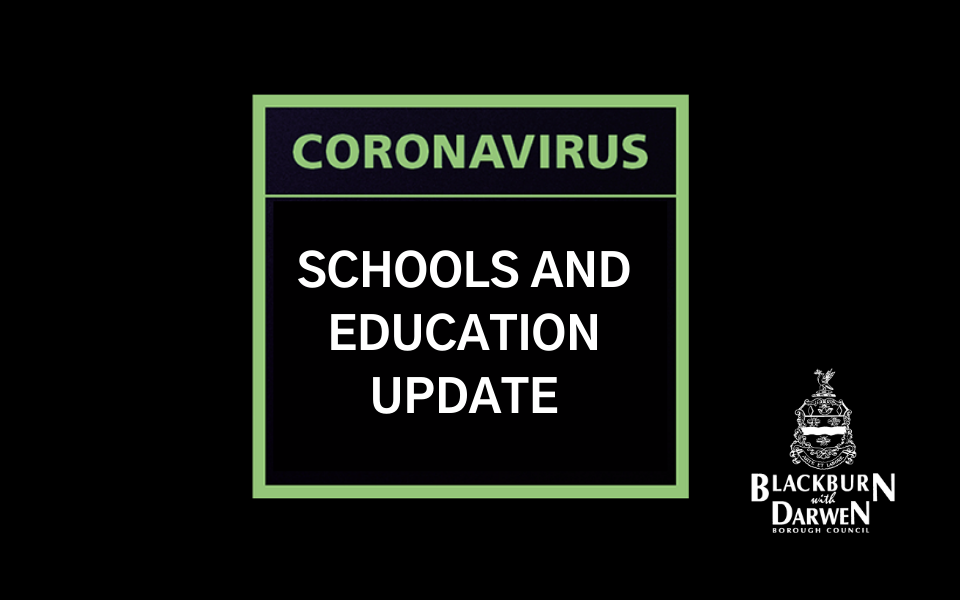
Published Thursday 4 June 2020 at 13:23
Blackburn with Darwen Council’s Director of Public Health Professor Dominic Harrison has provided further guidance to all head teachers in the borough this week.
Mr Harrison said:
After careful consideration of the comprehensive risk assessments that schools have completed, supported by the Council, and the launch of the test and trace system, our position remains that primary schools can begin a cautious phased extension of opening to the identified key year groups from 8th June over a three week period. This will give us the capacity to keep infection rates and trends for COVID19 under weekly review to be assured that all of the Governments 5 tests for lifting lockdown continue to move in the right direction.
The test trace and isolate programme will soon be able to identify the risk of school based outbreaks and we anticipate substantial progress will be made with this programme by the 8th of June and over the coming weeks.
The Local Authority are working closely with Public Health England at a local and Lancashire level to ensure growing capacity to identify and manage confirmed COVID19 cases in schools, workplaces and other settings and within Blackburn with Darwen there is a task and finish group working directly on managing and mitigating COVID19 related risks to schools settings.
From the 8th June early years and primary schools begin to welcome back children cautious steps over a three week period;
- Week 1 – Nursery and reception
- Week 2 – Nursery, reception and Year 1
- Week 3 – Nursery, reception, year 1 and year 6
From the 15th June Secondary schools and sixths form colleges will begin to welcome back young people for some face to face learning, with around a quarter of this year group in at any point.
Each setting is different and each leadership team within these settings will approach this to meet pupil needs.
With regards to special schools our advice is to begin a cautious phased extension to accepting more children and young people based on Government guidance and a review of risk assessments of each individual learner from 8th June.
Heads have also been asked, especially when working with younger children who are unable to follow social distancing rules to, to advise staff to:
- Minimise contact with people who are unwell ;
- Clean hands often;
- Respiratory hygiene (catch it, kill it, bin it);
- Clean frequently touched surfaces;
- Minimise contact and mixing;
- Use appropriate PPE.
Advice has also been given to ensure classroom surfaces are clear to allow regular cleaning throughout the day and any soft furnishings including table cloths, play tents, play mats and rugs are removed for now, to help ensure surfaces are kept clean.
